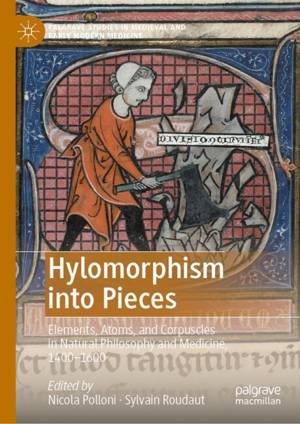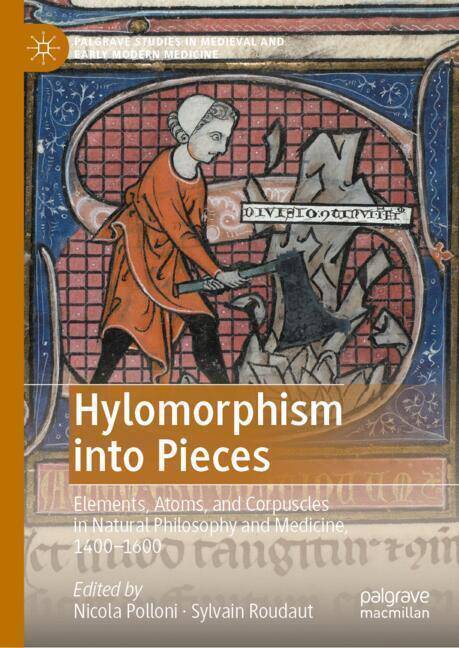
- Afhalen na 1 uur in een winkel met voorraad
- Gratis thuislevering in België vanaf € 30
- Ruim aanbod met 7 miljoen producten
- Afhalen na 1 uur in een winkel met voorraad
- Gratis thuislevering in België vanaf € 30
- Ruim aanbod met 7 miljoen producten
Hylomorphism Into Pieces
Elements, Atoms, and Corpuscles in Natural Philosophy and Medicine, 1400-1600
Omschrijving
Focussing on late medieval and early modern philosophy and medicine, this edited collection explores the replacement of hylomorphism--the dominant theory of bodies in the Middle Ages--with new theories of matter such as corpuscularianism and atomism at the dawn of the Modern period. Together, the contributions offer a comprehensive overview of a crucial historical moment for the history of philosophy and science: the rise of a new conception of matter against declining scholastic theories. They highlight the key aspects of this historical transition by investigating precise concepts that were central to this shift, namely the notions of elements, atoms, and corpuscles. Shedding light on the gradual process by which hylomorphism was eventually replaced by a more positive conception of matter and natural processes, the book demonstrates how many thinkers of the late medieval period were willing to integrate new theories into the conceptual framework of Aristotelian natural philosophy, and tried to harmonise them with the traditional concepts and axioms of scholastic doctrines. Showing how these conceptual innovations resulted from a complex interaction between different fields of late medieval and early modern knowledge, the authors bring together research from the disciplines of metaphysics, medieval philosophy, and medical science. Providing an overview of an important theoretical shift in the transition from the Middle Ages to the Modern Era, this book is essential reading for scholars of philosophy, and historians of medieval and early modern science and medicine.
Specificaties
Betrokkenen
- Uitgeverij:
Inhoud
- Aantal bladzijden:
- 368
- Taal:
- Engels
- Reeks:
Eigenschappen
- Productcode (EAN):
- 9783031609268
- Verschijningsdatum:
- 25/09/2024
- Uitvoering:
- Hardcover
- Formaat:
- Genaaid
- Afmetingen:
- 148 mm x 210 mm
- Gewicht:
- 603 g

Alleen bij Standaard Boekhandel
Beoordelingen
We publiceren alleen reviews die voldoen aan de voorwaarden voor reviews. Bekijk onze voorwaarden voor reviews.










